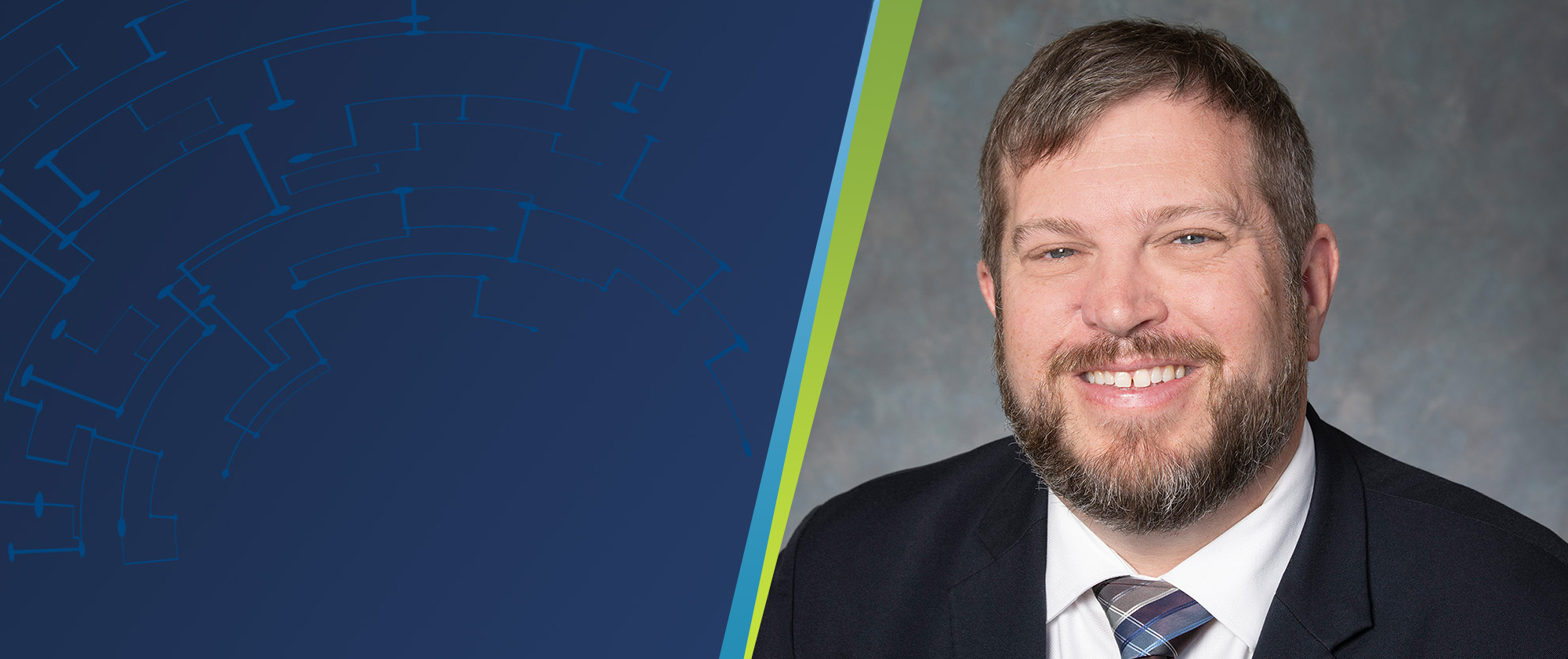We are delighted to introduce you to Gene Olinger, Ph.D., Chief Science Advisor with MRIGlobal and an adjunct associate professor at Boston University’s School of Medicine, Dept. of Medicine, and Division of Infectious Diseases.
For more than 20 years he has conducted and supervised in vitro and in vivo experiments in maximum biocontainment (risk level 2-4) at government, industry, and academic laboratories with a focus on high consequence pathogens and biodefense. Dr. Olinger is internationally recognized as a subject matter expert in virology, immunology, biorisk, biosecurity, and biosafety with an emphasis with viral hemorrhagic fevers. He has extensive experience in development of medical countermeasures ranging from prophylactic treatments, vaccines, diagnostics, and therapeutics. His team in collaboration with international partners developed the first successful antibody treatment for Ebolavirus disease, ZMapp.
With Dr. Olinger’s expertise, MRIGlobal is partnering to provide cutting-edge solutions for COVID-19 in the U.S. and globally. While COVID-19 is a major concern now, MRIGlobal and other virologist are preparing for and tackling early identification for potential new viruses that can be even worse.
Dr. Gene Olinger shares about COVID-19 as well as Disease X, a virus that infects humans or animals and would devastate our livelihood.
Watch our video below or read our blog about What is Disease X?
When did you know you wanted to be a scientist?
From an early age, I had an interest in science, participating in science fairs in elementary, middle and then high school with a few wins. Unfortunately, there were few if any STEM programs, but the idea of applied science become a key interest, primarily around environmental health and biology. In college, science piqued my interest. I was invited to work in a lab my junior year and I fell in love with laboratory work. Dr. Robert Ratzlaff was my first scientific mentor and between discussions in his office, working in the lab and his classes, I was hooked on immunology and microbiology. Encouraging mentors are critical. It was his and later others, including Dr. Lolyd Wolfinbarger in the science department mentorship, that allowed me to see what being a scientist was all about and then nurtured my growth in the field.
What was your pathway to becoming a scientist?
I was working in public and environmental health after college. It was a very applied public health role and I was working part-time in the laboratory to continue building my scientific skills. Combined, these experiences allowed me to define my specific interest in science. Knowing I had an interest in virology, human immunology and HIV infection, I reached out for graduate school researchers for graduate school. I was again very lucky to find another outstanding doctoral advisor and mentor, Dr. Greg Spear at Rush University. He continued to guide my scientific development and has been a lifelong mentor. Mentors are key to a scientific career.
What is your role at MRIGlobal?
I am a principal advisor and chief scientist of the life sciences principal investigator and subject matter expert group. I would argue that my role is to build programs with internal and external teams. It’s kind of like playing the childhood match game, where you turn a card over and find an “apple” image. In the game, you turn the card over, and try another, maybe find a pear, grape, then eventually you will find an apple under another card. Match! As a team we do the same now. We attend conferences, meet with other colleagues and then ask our contacts about the problems they need solved. When we can match a problem with a team that can find a solution … again, match!
What excites you about working at MRIGlobal?
It’s always the people and the problems we get to solve! We have a multidisciplinary team that is excited about finding creative and innovative solutions to really hard-to-answer science and engineering questions. Moreover, the questions are really meaningful and life changing for the scientist involved (building our knowledge), our community, and the world. It is a slow process, but the work we do makes a difference.
The other great thing about working at MRIGlobal is we are always thinking about the future and how to improve the health and welfare of society. With COVID-19 we are witnessing the power and promise of science and engineering. Decade processes have been accomplished in less than a year. As such, MRIGlobal is ready to look into the future to develop solutions that protect society from similar epidemics and pandemics.
As we solve this pandemic, the science, engineering and technologies will continue to expand and lead to new discoveries that will better life and lead to jobs and prosperity. In my role, my colleagues and I get to serve as a futurist to plan our strategic innovations. We are now on the verge of a new phase of expansion for our economy based on converging disciplines. Biotechnology efforts of the past are transitioning to the bioeconomy where tremendous opportunity exists to improve planetary health. The bioeconomy or bio-based economy aims to combine biology, chemistry, computational science and engineering, to focus on solutions using renewable resources from land and sea, like crops, forests, fish, animals and micro-organisms to produce food, materials, and energy. Existing and new items will be made in a sustainable manner that will lower our impact on the environment and climate by having recyclable (circular) and low-carbon production processes. It will drive our future economy in a boom like we have observed the past 40 years by the semiconductor industry. The future is exciting and bright beyond this pandemic!
What are your interests outside of work?
Aviation is my love outside of science. I fly, refurbish antique aircraft, and volunteer with the Civil Air Patrol, U.S. Air Force Auxiliary. I love the combination of science, engineering and technology within aviation and rarely find an airplane I don’t like or want to add to my collection.

